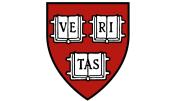Following its October and November discussions about climate change and whether Harvard should divest any endowment assets invested in fossil-fuel production, the Faculty of Arts and Sciences (FAS) has a formal motion on its agenda for preliminary debate at its December 3 meeting. The debate will be provisional, in two senses: FAS rules require that substantive items be discussed at a meeting before being presented for a vote at a subsequent meeting; and the Corporation, which sets University investment policy, and President Lawrence S. Bacow are on record in opposition to divestment (as the president explained in some detail in his remarks at the end of the November meeting).
The motion before the faculty reads as follows:
Professor Nicholas Watson [Cabot professor of English literature and chair of the department] will move that the Corporation should instruct the Harvard Management Company to withdraw from, and henceforth not pursue, investments in companies that explore for or develop further reserves of fossil fuels, or in companies that provide direct support for such exploration and development; over a reasonable period of time, extend those instructions to advisers of investment vehicles used by Harvard’s endowment, including commingled funds where Harvard is not the sole investor; and ensure that any adviser who may be unwilling or unable to comply is replaced by one who is willing to carry out these instructions.
In preparation for the meeting, faculty advocates of divestment have released “Harvard's Response to the Climate Crisis,” a white paper summarizing their case. It is reproduced here as a courtesy to readers. It recapitulates faculty members’ prior statements about the magnitude of the climate-change crisis, the urgency of acting, and the ethical arguments about divestment. The paper further proposes individual and institutional actions, ranging from “drastically” reducing air travel and making vegetarian meals “the default choice in dining halls” (see “Eating Greener,” for a discussion of sustainable food production and dining on campus) to investing substantially in climate-change research and curriculum (extending to mandatory online training for students and staff, similar to the training now required on sexual harassment and Title IX procedures).
So the debate on climate change and divestment, which has dominated faculty meetings this fall, will extend into the spring semester. Stay tuned. As a convenience for readers, here are other reports on recent divestment-related matters on campus and beyond (in addition to the accounts of the October and November meetings, linked above):
An Overseer petition slate, focusing on climate change and governance reform
Student divestment activism at The Game, in New Haven









